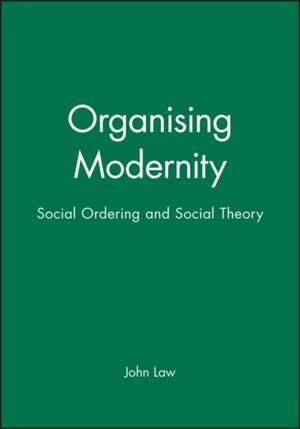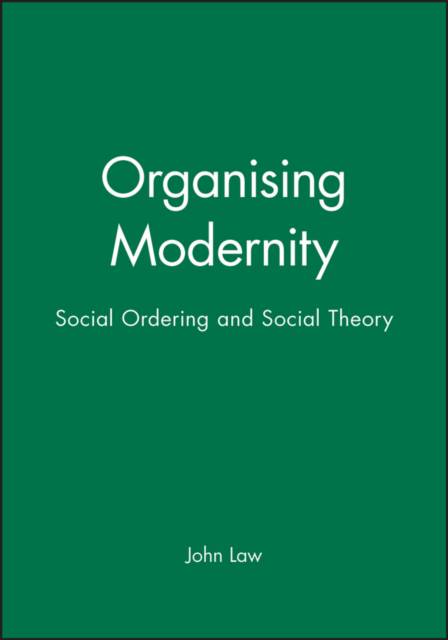
Je cadeautjes zeker op tijd in huis hebben voor de feestdagen? Kom langs in onze winkels en vind het perfecte geschenk!
- Afhalen na 1 uur in een winkel met voorraad
- Gratis thuislevering in België vanaf € 30
- Ruim aanbod met 7 miljoen producten
Je cadeautjes zeker op tijd in huis hebben voor de feestdagen? Kom langs in onze winkels en vind het perfecte geschenk!
- Afhalen na 1 uur in een winkel met voorraad
- Gratis thuislevering in België vanaf € 30
- Ruim aanbod met 7 miljoen producten
Zoeken
Omschrijving
In this important theoretical and empirical statement John Law argues against the purity of post-enlightenment political and social theory, and offers an alternative post-modern sociology. Arguing in favor of a sociology of verbs, he suggests that power, organizations, mind-body dualisms, and macro-micro distinctions may all be understood as the local performance of recursive modes of social ordering.
Drawing on a range of theoretical traditions including actor-network theory, verstehende sociology, and the writing of Michel Foucault, he explores the production of materials - including agents and architectures - and their importance for these modes of ordering. The book, which draws on organizational ethnography to develop its argument, is essential reading for all those interested in social theory, materialism, or the sociology of organizations at the end of the era of high modernity.
Drawing on a range of theoretical traditions including actor-network theory, verstehende sociology, and the writing of Michel Foucault, he explores the production of materials - including agents and architectures - and their importance for these modes of ordering. The book, which draws on organizational ethnography to develop its argument, is essential reading for all those interested in social theory, materialism, or the sociology of organizations at the end of the era of high modernity.
Specificaties
Betrokkenen
- Auteur(s):
- Uitgeverij:
Inhoud
- Aantal bladzijden:
- 240
- Taal:
- Engels
- Reeks:
Eigenschappen
- Productcode (EAN):
- 9780631185130
- Verschijningsdatum:
- 8/12/1993
- Uitvoering:
- Paperback
- Formaat:
- Trade paperback (VS)
- Afmetingen:
- 152 mm x 229 mm
- Gewicht:
- 340 g

Alleen bij Standaard Boekhandel
+ 172 punten op je klantenkaart van Standaard Boekhandel
Beoordelingen
We publiceren alleen reviews die voldoen aan de voorwaarden voor reviews. Bekijk onze voorwaarden voor reviews.









